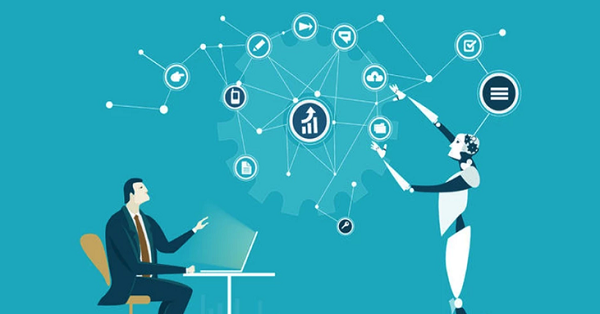Artificial Intelligence (AI) has emerged as a transformative technology that has revolutionised many industries, including the human resource management (HRM) sector.
AI has the potential to revolutionise HRM by streamlining processes, enhancing efficiency, reducing costs, and improving decision-making. This article explores the various AI applications in HRM and the benefits it brings to organisations.
Ai Applications in HRM
Recruiting
Recruiting is one of the most critical HR processes, and AI has transformed how it is done. AI has the ability to automate various recruitment processes, such as resume screening, shortlisting, and scheduling interviews.
This can lead to a significant reduction in the time and effort required to find the right candidates. By utilising AI, HR teams can streamline their recruitment processes, which ultimately leads to a faster and more efficient hiring process.
AI-powered recruiting tools can also analyse job postings and social media data to identify potential candidates who may not have applied for the job.
Onboarding
Onboarding introduces new employees to an organisation and can often be a complex and time-consuming task. AI can automate many aspects of onboarding, such as filling out paperwork, scheduling orientation sessions, and assigning mentors to new employees.
AI-powered onboarding tools can also provide personalised training programs based on each employee’s needs and preferences.
Performance Evaluation
Evaluating employee performance is a key HR function that can benefit from AI. With AI-powered performance evaluation tools, employee performance data such as productivity, attendance, and quality of work can be analysed to identify individual strengths and weaknesses.
This can provide valuable insights to HR managers and assist in making more informed decisions regarding employee performance management. This can help managers identify areas for improvement and develop personalised development plans for each employee.
Employee Engagement
Employee engagement is critical to organisational success, and AI can help improve it. AI-powered engagement tools can analyse employee data, such as feedback, surveys, and social media activity, to provide insights into employee satisfaction and engagement levels. This can help organisations identify potential issues before they become a problem and develop targeted interventions to improve employee engagement.
Benefits of AI in HRM
Improved Efficiency
AI can significantly improve the efficiency of HR processes by automating time-consuming and repetitive tasks. This can free up HR teams to focus on more strategic activities, such as developing and implementing HR policies and programs.
Cost Savings
By automating HR processes, organisations can reduce the administrative burden on HR teams, which can lead to cost savings. AI-powered recruiting tools can also help organisations reduce hiring costs by identifying potential candidates who may not have applied for the job.
Enhanced Decision-Making
AI has the capability to offer valuable insights to HR teams by analysing HR-related data. For instance, AI-powered performance evaluation tools can provide valuable insights into the strengths and weaknesses of individual employees.
Managers can use this information to create personalised development plans for each employee. By using AI, HR teams can make better decisions that lead to improved employee performance and ultimately, better business outcomes.
FAQs
What are the benefits of AI in HRM?
The benefits of AI in HRM include improved efficiency, cost savings, enhanced decision-making, and improved candidate experience.
What are the limitations of AI in HRM?
The limitations of AI in HRM include the potential for bias in AI algorithms, the need for data privacy and security, and the significant investment required in technology and training.
What are the best practices for implementing AI in HRM?
The best practices for implementing AI in HRM include carefully selecting the HR processes to automate, ensuring that the AI algorithms are ethical and unbiased, and providing adequate training and support to HR teams to use the AI-powered HR tools effectively.
Conclusion
In conclusion, integrating AI into HRM can bring significant improvements in terms of streamlined processes, increased efficiency, reduced costs, and better decision-making. By utilising AI-powered HR tools, tasks such as recruiting, onboarding, performance evaluation, and employee engagement can be automated, freeing HR teams to focus on more strategic responsibilities.
However, it is important to recognise that implementing AI in HRM presents its own challenges and limitations. For example, there is the risk of bias in AI algorithms and the need to ensure employee data privacy and security.
As a result, organisations must exercise caution and be mindful of these challenges and limitations when deploying AI-powered HR tools.
